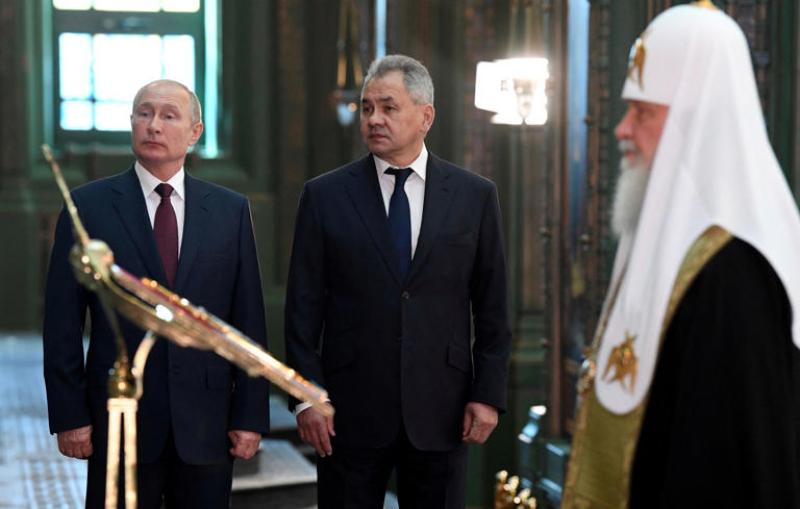
Yesterday, Constantine. Today, Kirill


This is a modern day example of what happened to Christianity during the time of Constantine, in my opinion. Knowing nothing else, one might assume that the Russian Orthodox Church would be concerned with Christ and the Great Commision. Obviously not.
Subsequent the death and resurrection of Jesus, becoming a Christian was quite literally choosing to put one's life at risk, depending on time and place. While history can prove unreliable it is certain that Christians held little, if any, political sway. It is certain, however, that Christians often paid with their lives for their faith.
All of that changed with Constantine. First, officially stopping the persecution of Christianity as a pagan religion and, later, adopting it as the official state religion. Whether or not he intended it, what he created was another route to power. That route was exploited and explains much of the RCC's history.
What we are seeing concerning the Russian Orthodox Church and the Prelate Kirill is a modern replay of what began long ago and continued throughout RCC history.

This isn't intended as an attack against the RCC. While I believe the RCC in general distorts Christianity, so have non-RCC institutions. The point is to provide an example of how personal human concerns can highjack anything.
The Roman Catholic Church and the Russian Orthodox Church are not the same church. The RCC follows Western Rites, the ROC follows Eastern Rites. Also, their priests can get married and as you have noticed the head of their church is called a Prelate or Patriarch. The RCC has the Pope
Interesting. But, like the lot of-and I can't believe the things I have and am setting myself up to state fairly mind you about churches-the RCC did apologize to the Jewish people for its failure to condemn Nazis. And recently for its failure with indigenous peoples in Canada. There is a great deal needing to be paid for in the organized religion sphere/networks. (Sigh.)
Even worse, Right-wing evangelicals are setting this very nation up for a new time of delusion and dehumanizing politics which can lead to open physical brutality and even civil warfare.
This may help:
By the 4th century AD not becoming a Christian put one's life at risk. Just ask Hypatia.
Without a statement of where this topic is intended to go, I will offer up this: The Church as a whole ought to chart and maintain its path of:
Romans 12: 8 If possible, so far as it depends on you, be at peace with all people.
The emphasis here is on a word: "IF." The you is the Church as a whole. Why is a Church sanctioning a war of aggression? Is this a sin of commission? I think so.
Russian Orthodox leader backs war in Ukraine, divides faith
Unlike Constantine's time, a bit more dissension happens. Notably, without the beheading, so far.
This one 'died' a cruel and unusual punishment' of few comments!